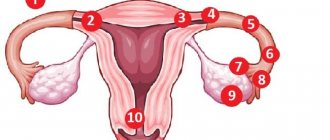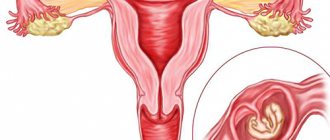What is emergency contraception
Most contraceptive methods are used before sex.
But sometimes it happens that there was sex, but there was no protection. This could be an ordinary everyday situation, when there was “no time”, a condom broke, or you forgot to take a birth control pill. Finally, we must not forget about rape. In all these cases, emergency contraception will help prevent pregnancy - means that act after, and not before.
Most often, medications are used to prevent pregnancy after sexual intercourse. Emergency contraceptive pills are hormonal drugs based on levonorgestrel and ulipristal acetate. Emergency contraception. WHO fact sheet. These are not the only options, but they are the most popular and effective. If you take the pill within the first 72 hours after intercourse, your chance of getting pregnant is How Does Emergency Contraception Work? only 1–2%.
Drugs used after sexual intercourse
The main condition for their use is a strict time frame - no later than 3 days after unprotected sex.
Taking a pregnancy test should be a mandatory step. If the result is positive, doctors strongly recommend that you stop taking emergency contraceptives. They can provoke the development of pathologies of the reproductive system.
To decide which postcoital product is best to use, you need to familiarize yourself with several common emergency contraceptives.
Postinor
One of the first highly effective emergency contraceptives is Postinor tablets. To achieve results, the medicine must be taken within 24 hours after unprotected coitus.
The composition contains levonorgestrel and excipients. The drug has an impressive list of side effects and contraindications. Therefore, you should carefully study the annotation before use.
Escapelle
Escapelle is a contraceptive in 1 tablet. It is an analogue of Postinor and is positioned as a more advanced drug. Contains an identical amount of levonorgestrel, but only in one tablet.
The declared effectiveness of the drug is high, but if a woman has already undergone implantation, there will be no result.
Gynepristone
Ginepristone tablet is an excellent remedy for unwanted pregnancy. The active ingredient, mifepristone, taken no later than 72 hours after sex, blocks progesterone. Thus, the drug is able to slow down ovulation or change the structure of the endometrium, causing menstruation.
Mifepristone, unlike gestagens, has the ability to urgently terminate pregnancy. Its effectiveness does not depend on the phase of the cycle.
Like any serious medicine, it has its contraindications and side effects.
1. Method of calculating “safe” days
There are certain days during a woman's cycle when the chances of conception are extremely low. Such days are called “safe periods”.
There are three ways by which you can calculate those safe days when a woman can enjoy intimacy with her loved one without fear of getting pregnant.
So, the first method is the temperature method of contraception, which includes checking the basic body temperature.
The second method is the so-called calendar method, when a woman calculates “safe” days through special calculations.
And finally, the third method is the so-called cervical mucus method, which involves checking the density of vaginal discharge daily.
None of these three methods are one hundred percent effective. Therefore, for greater accuracy, you can use all three methods of contraception to determine those safe days.
2. Raw papaya
Residents of India, Sri Lanka and other countries used papaya as a folk contraceptive.
Raw papaya is known to be an effective natural method of contraception. Therefore, doctors often warn women about the danger and ask them to avoid eating this fruit during pregnancy.
When eaten raw, the fruit is rich in vitamin C, which is known to increase estrogen production in the body. Moreover, papaya also helps in regulating menstrual cycles.
If you are afraid of getting pregnant, as a preventative measure, eat a ripe fruit every day. Papaya in the diet reduces the likelihood of conception.
Emergency contraception is possible using the latest drugs that do not contain hormones. The active ingredient is mifepristone. These drugs are: Zhenale, Mifolian, Mifetin, Ginepristone.
Their action is based on changing the inner lining of the uterus and increasing its contractile activity. As a result of these processes, the fertilized egg is unable to implant and is rejected. It is enough to drink one contraceptive capsule at any phase of the cycle.
Despite the fact that today hormonal contraception is the most effective method of protection, the effects of conventional birth control pills and “fire” contraception are different. Although both are developed on the basis of hormones. Conventional birth control pills are selected individually and are used by a woman daily throughout the menstrual cycle.
Emergency contraception with the help of hormonal drugs is taken immediately after unprotected sex once, according to the instructions for the drug. The action of such contraceptives is based on egg rejection, decreased peristalsis of the fallopian tubes, and changes in the endothelium.
Thanks to modern research in the pharmaceutical industry, 2 main options for emergency contraception after unprotected intercourse have been invented.
Scientists involved in the development of these drugs have created several types of emergency contraceptives that help avoid unwanted pregnancy.
Emergency oral and vaginal contraceptives use large doses of progesterone. This is a hormone that affects changes in the lining of the uterus and blocks the release of an egg from the ovary. In oral contraceptives, this hormone is used in the smallest quantities.
But it can be found in the following tablets:
- "Postinor". Directions for use: 1 tablet after PA for 48 hours, 12 hours after taking the first dose you need to take another one. This medicine may only help if taken within 72 hours.
- Escapelle should be taken no later than 96 hours after PA.
Antigestagens are drugs containing a small dosage of antiprogesterone. They are a fairly effective method of protection after PA. Antiprogesterone is contained in these drugs:
- "Agest" - has an effect that prevents ovulation and fertilization. This remedy is used within 72 hours after PA.
The main disadvantages of douching against pregnancy:
- individual characteristics of the vaginal microflora;
- increased activity and concentration of viable sperm;
- insufficient amount of acidic liquid used for douching.
It is recommended to use folk remedies for pregnancy for 5-10 minutes, introducing the solution with slow movements. This is necessary so that the liquid washes the entire vaginal cavity. After the procedure, the girl should spend several minutes in a lying position.
The most effective ways to prevent conception:
- You should cut a slice from a large lemon and insert it into the vagina for 10-15 minutes before sexual intercourse.
- Citric acid – dilute 5 g of citric acid in 1 liter of boiled water, mix thoroughly and use to wash the vagina.
- Vinegar - pour 2 tablespoons of ordinary table vinegar into 1 liter of warm water, then use the resulting liquid for douching.
- Potassium permanganate - 9-10 crystals of potassium permanganate should be diluted in 3-4 glasses of warm water, after they are completely dissolved, rinse the genitals with the solution.
- Aspirin – A post-coital procedure to prevent pregnancy involves inserting an aspirin tablet into the vagina immediately after sex.
In addition to douching, the most effective modern methods for preventing unwanted pregnancy include interrupted sexual intercourse, as well as the calendar method. Its essence is that 5 days before menstruation and 5 days after it, a woman cannot become pregnant. This method has several disadvantages, since a prerequisite for its effectiveness is a regular menstrual cycle and careful monitoring of it for at least 4 weeks.
There are many folk methods of preventing unwanted pregnancy, intended for internal use. These are various decoctions, infusions, tinctures.
One of the most famous and popular contraceptives for several centuries has been a mixture of dates, acacia and natural honey. To prepare it, you must maintain the following proportions - combine equal parts of acacia shoots and dates, grind until mushy and add honey.
Answering the question of how you can protect yourself from pregnancy using folk remedies, alternative medicine suggests using a decoction of rowan flowers. To prepare it, pour a glass of boiling water over a rowan-colored tablespoon and then leave to steep for an hour. The finished product should be filtered and consumed 100 ml before each meal.
A quick contraceptive result can be obtained by using a folk remedy made from coriander seeds. Grind a teaspoon of seeds in a coffee grinder to a powder-like state, add 250 ml of hot water and simmer over low heat for 10-12 minutes. It is recommended to take 100 ml of strained and infused liquid after each meal.
How not to get pregnant without pills and IUDs? To prevent conception, you can use one of the following recipes:
- a tablespoon of clove seeds should be crushed in a coffee maker, then pour a cup of boiling water and leave for an hour, take a tablespoon before each meal;
- leaves and stems of the moss moss in the amount of one spoon should be poured into 0.5 liters of water and simmered over low heat for 10 minutes, after 2.5-3 hours the infusion should be taken a spoonful three times a day;
- Gentian rhizome should be poured with hot water in a ratio of 1:10, left to infuse for 40 minutes, then taken 1/3 cup three times a day;
- wild rosemary - pour a glass of boiling water over a spoonful of pre-crushed plant and leave for 2-2.5 hours. It has a contraceptive effect on the body and reduces sperm motility.
How does emergency contraception work?
Emergency contraception works in several ways Plan B One-Step:
- Suppresses ovulation. Since ovulation does not occur, then there is no mature egg that could be fertilized.
- Prevents fertilization.
- Prevents the attachment of the fertilized egg to the uterus.
In any of these cases, pregnancy does not occur.
But if you are already pregnant, the doses of hormones that emergency contraception offers no longer work.
Factors contributing to infection with sexually transmitted diseases
Unprotected sexual intercourse
can lead to serious complications even if a woman has recently had hair removal in the intimate area. This is due to the fact that minor cuts and scrapes have not yet healed, and through them infections can easily enter the body and spread.
Also, interrupted sexual intercourse or a torn condom are reasons to go to the clinic and have an examination. The most common sexually transmitted diseases and sexually transmitted infections are listed below:
- Trichomoniasis
- Gonorrhea
- Herpes
- Chlamydia
- Syphilis
- Ureaplasmosis
How to take pills correctly
Strictly according to the instructions, because there are many drugs and each has its own characteristics. If you have the opportunity to consult a doctor before use, it is better to do so: the doctor will recommend tablets that have minimal side effects.
But this is not always possible. And, in principle, there are no special contraindications for taking pills. Emergency contraception. Standard exceptions:
- If a woman cannot take hormonal contraceptives for some reason.
- If you are allergic to the components of the medicine.
- If you are already pregnant Plan B One-Step.
There is no need to do any special examinations or tests before emergency contraception.
Why is prevention important?
Statistics show that every year about 300 million women and men become infected with sexually transmitted diseases. As soon as infection occurs, acute symptoms appear that completely change the patient’s life. Often diseases behave differently; at first they do not make themselves felt at all.
Whatever the STD, the result will always be serious consequences, unless, of course, you visit a specialist in time. According to research, when an STD occurs, the chances of contracting HIV increase significantly.
- 40% of women who have chlamydial or gonococcal infection have pelvic inflammatory disease. Every 4th person will never be able to become a mother.
- Women who, in 39% of cases, cannot successfully achieve pregnancy. Stillbirth often occurs.
- Sexually transmitted infections cause premature death.
What happens after taking the pill?
If you take the pill after unprotected sex, you may experience side effects.
These are primarily minor bleeding and changes in the cycle: the next menstruation may be heavier or, conversely, lighter.
Other side effects:
- Lower abdominal pain.
- Tension in the chest.
- Headache.
- Nausea.
- Fatigue.
These symptoms should go away within a couple of days, otherwise you should consult a doctor.
STDs and preventive measures
Sexually transmitted diseases represent a whole group of infectious diseases. They have different clinical manifestations, which are united by sexual transmission.
In addition, they have a high social danger. This concept began to be used in 1980, and currently there are more than 20 types of infections and viruses.
STDs according to the type of pathogen:
There are cases when the disease does not show any symptoms, but they appear when the immune system is weakened.
This implies the importance of taking preventive measures: use contraception, do not engage in casual sex, maintain hygiene, and get tested for genitourinary infections twice a year.
If you suddenly experience itching or burning in the genital area, unusual discharge with an unpleasant odor, ulcers or rashes appear, you should immediately go to the doctor.
Emergency contraception is not just pills
To quickly prevent unwanted pregnancy, not only hormonal pills are used, as is commonly thought, but also intrauterine contraceptives.
Inserting a regular intrauterine device within seven days of unprotected intercourse prevents pregnancy by almost 99%. In addition, this method automatically turns into long-term contraception.
Only a doctor installs the spirals.
IUDs have their pros and cons, which should be discussed with your doctor. But even if you decide on this method, remember that you will still have to get tested for STIs.
How to prevent pregnancy
6. Asafoetida (silphium)
This herb can be found in some pharmacies. Asafoetida is known to prevent pregnancy.
It is used as a contraceptive in countries such as India and China. When boiled, this plant has a rather pungent taste.
In addition, it is an excellent antiviral agent that helps maintain the health of the immune system. This herb is also used to improve the functioning of the digestive system.
You can take the decoction warm with the addition of apple cider vinegar. This decoction will not only prevent unwanted pregnancy, but will also help keep your figure in perfect shape.
7. Blue cohosh
Another plant that is often used as a natural contraceptive is the blue cohosh plant.
This herb is known to not only prevent unwanted pregnancy, but also relieve menstrual pain and also act as a laxative.
The contraceptive recipe is as simple as possible: you need to brew a couple of tablespoons of dried herbs in a glass of boiling water and drink the mixture two to three times a day.
However, unlike previous means, this method is not the most harmless. The whole point is that the plant must be used with extreme caution. Blue cohosh is known for its ability to constrict blood vessels and cut off the supply of oxygen to the heart.
Therefore, before using this product, you need to weigh the pros and cons.
8. Wild Carrot Seeds
Wild carrot or Queen Anne's lace is a folk remedy that has been used by women for centuries to prevent pregnancy.
The seeds of this plant are a very effective natural contraceptive. The most popular recipe was the following: the seeds of the plant were crushed, then one teaspoon of the resulting mixture was diluted with a glass of water.
The woman had to drink this decoction within 7 days after unprotected intercourse.
9. Fragrant rue
Rue aromatica or Rue aromatica has also been an effective contraceptive for many centuries.
Residents of Latin and North America prepared a potion from this plant and took it as a contraceptive potion.
The herb contains pilocarpine and rutin, substances known to induce menstruation. Women simply brewed this plant as tea and then drank it. For greater effectiveness, this drug was drunk two to three times a day.
10. Angelica Chinese (Dong Quai)
Dong Quai is a Chinese herbal contraceptive that has been quite popular for some time.
This is an effective remedy for preventing pregnancy, but modern women have abandoned its use. The thing is that a direct connection of this plant with cancer was discovered.
Experts say that angelica causes hormonal imbalance and provokes cancer, such as breast cancer and ovarian cancer.
But, according to Chinese healers, in moderate doses, angelica chinensis is an excellent contraceptive.










